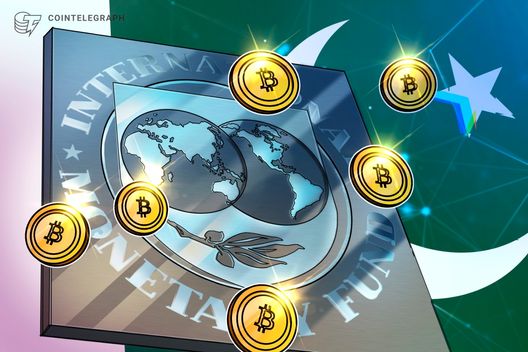IMF Warns on Pakistan’s Bitcoin Mining Plans Amid Energy Issues


The International Monetary Fund (IMF) has expressed concerns regarding Pakistan’s intention to allocate a substantial 2,000 megawatts of electricity specifically for Bitcoin mining operations. This proposed plan raises alarms amidst ongoing discussions about energy shortages and fiscal policies within the country.
Energy Crisis in Pakistan: A Growing Concern
Pakistan has been grappling with significant energy shortages, facing extended power outages that have affected both residential and commercial sectors. Despite improving its energy mix—where nearly 70% of its electricity comes from fossil fuels, hydro, and increasingly renewable sources—the country continues to struggle with demand outpacing supply.
In recent months, power shortages have intensified, leading to public unrest and concerns over economic stability. The IMF’s reservations about the Bitcoin mining plan highlight the tension between the need for economic innovation and the pressing necessity for reliable energy access for the population.
Technical Feasibility of Bitcoin Mining
Bitcoin mining is a resource-intensive process requiring large amounts of electricity to power specialized hardware, known as ASICs (Application-Specific Integrated Circuits). These machines perform complex calculations to verify transactions on the Bitcoin network, a process that consumes an estimated average of 800 to 1,250 kilowatt-hours (kWh) per mined Bitcoin, depending on the efficiency of the mining operations.
The proposed allocation of 2,000 megawatts could theoretically power a considerable number of mining rigs, but it poses critical questions about the feasibility of executing such a plan in a country already facing energy constraints. Experts argue that diverting this amount of energy for Bitcoin mining could exacerbate the current energy shortages instead of alleviating them.
Economic Implications and Expert Opinions
Financial analysts suggest that while leveraging Bitcoin mining could provide a revenue stream for Pakistan, particularly in the context of an improving crypto market, the short- and long-term economic implications are complex. Experts like Dr. Tania Yaqoob, an economist specializing in energy economics, stress the need for a thorough impact assessment. “Allocating such a sizable amount of energy to a highly volatile sector like cryptocurrency mining could sideline essential industries that require consistent power supply, such as manufacturing and agriculture,” she stated.
The paradox rests in the opportunity for technological advancement versus the immediate need to restructure Pakistan’s energy policy. As discussions surrounding the imminent IMF package unfold, it remains critical for policymakers to balance innovative projects with the basic power needs of the populace.
Global Context: Cryptocurrency Mining and Sustainability
Globally, the sustainability of cryptocurrency mining has been a point of contention, particularly with rising environmental concerns. Major regions, including China and the EU, have begun to clamp down on energy-intensive mining operations in light of climate goals.
Pakistan’s proposed mining ambitions must align with international sustainability frameworks to avoid falling prey to global criticism. The IMF’s intervention is a reminder of this interconnectedness, advocating for frameworks that emphasize economic stability, energy sustainability, and social responsibility.
“In an era where energy is scarce, prioritizing Bitcoin mining could lead to detrimental consequences for both the economy and the environment,” Dr. Yaqoob added.
Conclusion
As the global cryptocurrency landscape evolves, Pakistan stands at a critical juncture. With negotiations with the IMF set to continue, the country’s approach to Bitcoin mining will require a comprehensive strategy that considers energy needs, potential economic benefits, and the broader implications of such a technology-driven endeavor.
Monitoring developments in Pakistan’s energy policy alongside global cryptocurrency trends will provide critical insights for investors and policymakers alike.